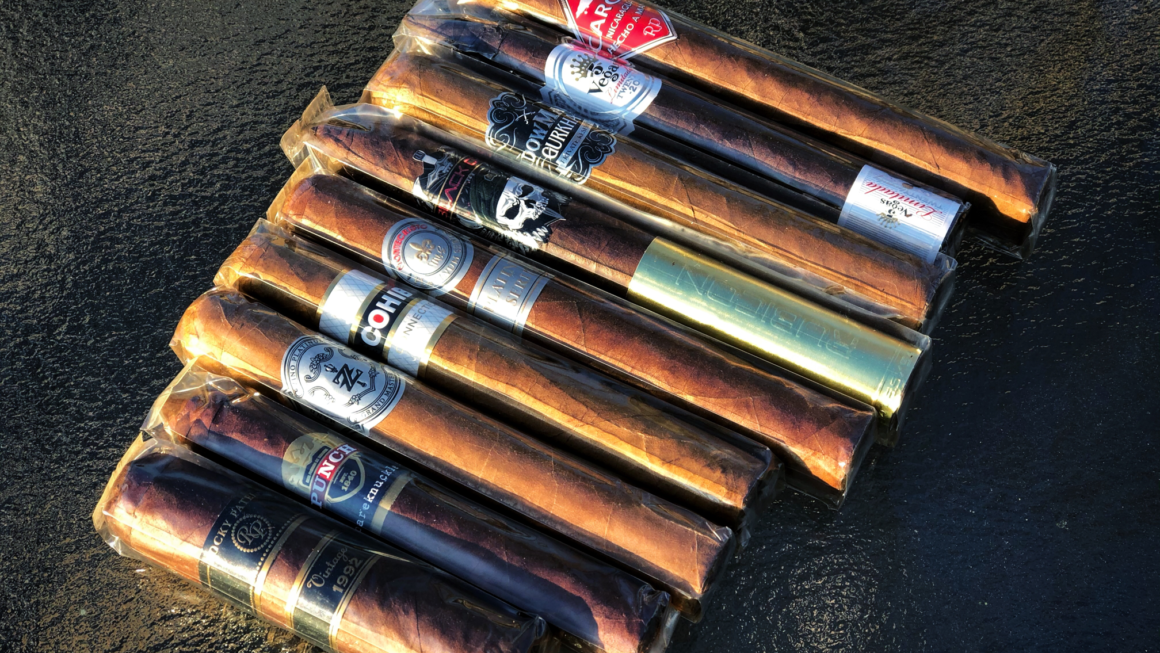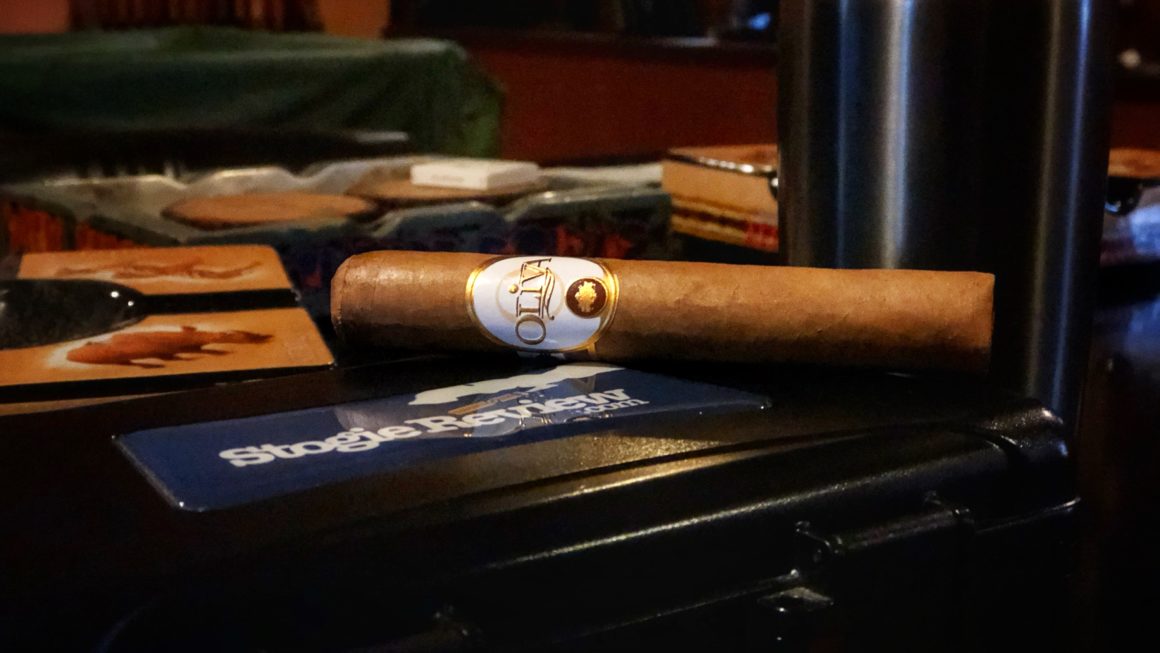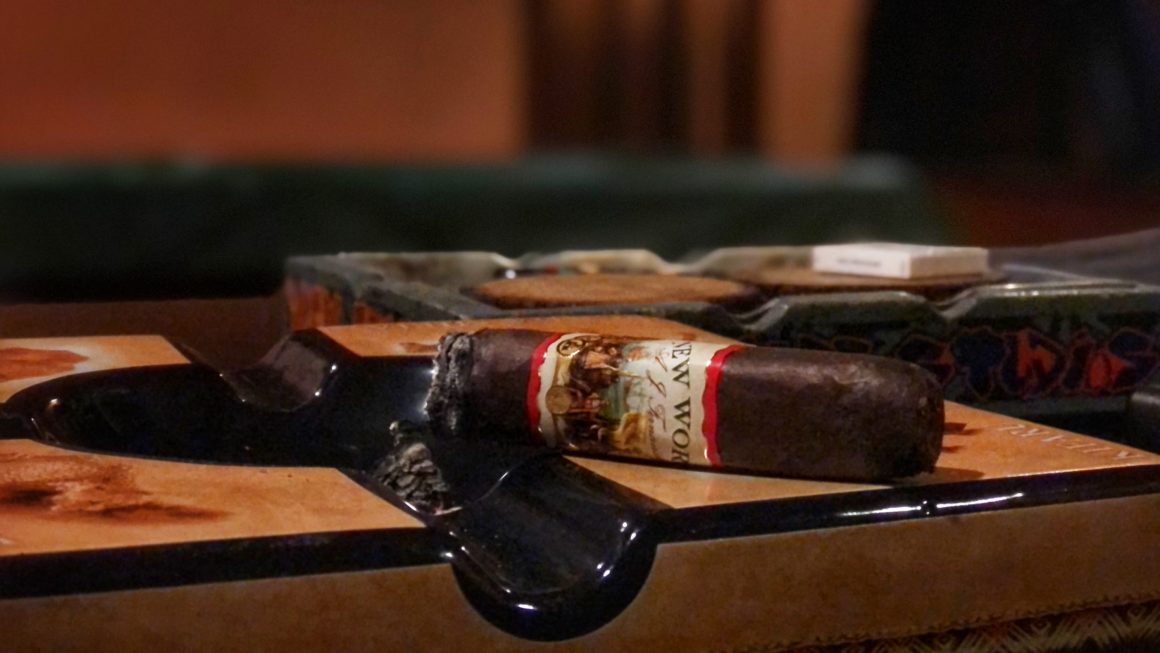Last weekend I decided to create a daily discussion on the Stogie Review Fan Forums. The idea was to pose a discussion topic to the members of the forum for a days time. After that day elapsed, I would lock the thread and pose a brand new topic.
Our second topic was one that went over exactly how I planned. The community members stepped up and really expressed their views on the subject. The topic I posed for discussion was “How large does a manufacturer need to become before you no longer consider them boutique and does it change your opinion of their product?”
The responses were very interesting and certainly got me thinking. Jut when I thought I had my head wrapped around my own opinion, I saw it from another angle and raised even more questions for myself.
Before I get into sharing my opinion on this, lets take a look at some of the key posts that got me thinking about boutique cigars even more-so than I was when I posted the discussion topic.
Vik:
Good question. I think that once a manufacturer starts producing a number of brands / labels that there is a noticeable negative change in quality, they can’t be considered boutique any longer. Two names come to mind for me – Rocky Patel and Don Pepin.
I still like most of what Pepin does, but he has been too busy and put out too many brands. I have had some smokes of his that either had no noticeable difference from other stuff he put out or just didn’t seem to be up to the quality we usually expect from him. He still does a lot of nice stuff, but I think he could trim back a little.
I can’t say much about Patel – he doesn’t really make anything I like too much any way and even if he comes out with something good, after a while it changes. Case in point was the Old World Reserve – that stick was awesome when it first came out, but then changed; lost something. Now it is just a mediocre stick.
I wouldn’t say these guys are necessarily “big” yet, like General / Altadis, but they are leaving that “boutique” territory in my opinion.
Vik had pretty much the same opinion of boutique manufacturers as I did. I thought of this type of manufacturer as being someone who produces a smaller number of cigars in comparison to your average manufacturer. Mike posted an excellent follow-up that made me think a little harder about the subject.
Irish Mike:
I think it depends on how you define boutique. I tend to define boutique for cigar purposes as an operation that specializes or concentrates on a small number of cigar lines. In addition, while being boutique does not require high priced goods, a high price usually comes along with the “boutique.” A prime example for me is Pete Johnson. When Pete was producing only the Tats and Cabaiguan I considered him boutique, but barely. Now that he has La Riqueza, a bundled cigar coming early next year, El Triunfador, and The Frank (even though the last two are limited releases) I can no longer consider him boutique. He has grown too large in terms of the cigars he produces to be considered boutique. Esencia, Panacea, and Illusione are companies that I still think of as boutique. At some point you become more like General Motors (“GM”) and less like Ferrari.
The question Mike raised in my eyes was, can Pete Johnson be considered a boutique cigar manufacturer? While Pete’s cigars are limited quantity and high quality, he does not make them. This would lead me to think of him along the lines of a brand owner, such as Sam Leccia. Both put their names on an excellent product but neither one of them make their own cigars.
With this in mind, does a boutique manufacturer need to be a manufacturer or can they be a brand owner? As I began to ask myself this question I read another post by MountChuck that kind of muddied the waters in my mind.
MountChuck:
I consider Don Pepin to be “half & half.” His Miami operations I would still consider to be a boutique. Only 8 or 12 rollers, putting out a very small number of cigars. His Nicaraguan operations, excluding his Pete Johnson stuff, is no longer boutique. The reason I say Pete is still a boutiquer is just quantity. He doesn’t put out a high number of cigars. He has more lines than ever, but that doesn’t mean he’s a big guy. The cigars all have different flavor profiles. And are made in small numbers. You’re not going to find his stuff in a plastic see through humidor in your local liquor store anytime soon.
This put a new spin on the topic and raised the question, can a manufacturer be half in and half out? I can certainly see how a portion of a manufacturers operation may be considered boutique, but how does that work in the overall scheme of things?
In the case of Don Pepin Garcia, here we have an individual that has a large operation in Nicaragua and also has a factory in Miami. The same goes for La Gloria Cubana and Padilla. Things get even more confusing in regards to Padilla because his Cigars International stuff is made by someone else. Ignoring that, would you consider either of these two companies boutique?
Personally I would never consider La Gloria Cubana boutique even though there is a separate operation for Miami made cigars. If we look at a boutique manufacturer as one that produces a limited quantity of cigars in their own factory, do we factor in anything that they have their names on? Just like mentioned above, we have Ernesto Padila with a Miami factory as well as several other brands that are outsourced with his name on them.
You are probably asking yourself what my point is. I guess I’m trying to say that a boutique manufacturer in my eyes needs to be a manufacturer and not just a brand owner. They need to produce a limited number of cigars, and they need to be limited due to a small number of employees and high quality control standards rather than a manufactured “limited production”. A boutique manufacturer needs to pour their heart and should into their brand and stand behind it.
In my eyes, a manufacturer looses the boutique designation as soon as they loose the above mentioned qualities. While I love cigars produced by individuals such as Don Pepin Garcia, I could never consider him, or any of his brand extensions, boutique simply because of the overall size of his operation.
Now that you have read my thoughts on the definition of a boutique manufacturer, how would you define it and when does a manufacturer loose the boutique status in your eyes?




I’m quite a bit more broad with my definition of Boutique.
To me, If one man is behind it all…its a boutique.. Rocky does put out alot of stuff, and is floating close to the line of boutique because of two distinct lines which operate alot like different companies, and is now getting into distributing.
to me the all out non-boutique producers are companies like Altaldis, and General Cigar. Companies that make NUMEROUS blends in all areas of the market. I could also include the Fuente family in this as well.
I like to associate it with beer companies… There are micro breweries (cusano, Perdomo, Tatuaje), there are regional brewers ie..sweetwater, Flat tire (Don Pepin, Padron, Rocky), then the Conglomerates ie..Anheuser-Busch, Miller (General Cigar, Altaldis)
Pepin himself is a blender… His own personal line is still a boutique.
He freelances for 601, Pete, and others. To me saying Pepin the Man is not a boutique is true…he’s not, but he blends for boutiques.
People tend to think that just cause Pepin Blended it, its under some mystical company that he’s running. It no different than the Dodgers picking up Manny Ramirez for a season.
anyway… as long as its not a General Cigar or Altaldis stick…I’m happy to give it my full support as a boutique.
Walt, this continues to be a fascinating topic to me. The definition of boutique, according to Merriam Webster, means (1)(a) a small fashionable shop; or (1)(b) a small shop within a large department store; or (2) a small company that offers highly specialized services or products. Boutique does not necessarily equate to manufacturing in the regular market, why should it be different for cigars? I think by including only manufacturers in the definition of boutique you really limit the playing field. Many small companies don’t “manufacture” their own cigars. They contract through a facility to have their cigars made. That’s no different that what Pete does and, by your definition, they are excluded from your list. These small companies are what I would consider boutique. Many of the “manufacturers” tend be large and therefore, in my opinion, cannot be considered boutique.
Further, I am left scratching my head when anyone says that Pepin is boutique. Pepin makes 8 lines of cigars himself (not even counting Tatuaje, 601, and Ashton). Further, he makes numerous house blends that truly are being pushed as his cigars (i.e. Yellow label from CI, 5 Vegas Miami, etc.). I am not sure how, by definition, he is still considered boutique.
And finally, Rich M, I am not sure how you are defining boutique because your comments are highly inconsistent with each other. You state “To me, if one man is behind it . . . it’s a boutique” then you state Fuente is not boutique. Fuente is a father and son and really it’s more the son at this point so by your own definition Fuente should be considered boutique. The reason you state that Fuente is not boutique is because they “make numerous blends in all areas of the market”. And Rocky does not? By this definition Rocky should not be boutique. For the record, I don’t think Rocky or Fuente is “boutique”.
Doesn’t Fuente make Ashton, Montesino, Cuesta Rey, Diamond Crown and La Unica?
Carlos, they do and that is why they are not boutique as I stated in previous post. My reference to Fuente being considered boutique was a result of the way Rich defined boutique. And for the record I am in no way criticizing Rich I am just wondering if he could better define his view of boutique for us. Again, this has always been a hot topic for me as I see many cigar makers refer to themselves as “boutique” when I do not consider them to be so. As I mentioned in my post in the forum, boutique is usually, but not always, associated with high priced goods. I think that’s just one reason why so many cigar makers want to be known as boutique, so they can charge $$$.
What utility does the designation of boutique have? Why bother? Regrardless we seem to be talking about two issues here. Availability/exclusivity and who is actually making the cigar/provenance.
If you are going to bother then it would seem to me that defining boutique along the lines of production size and availability is misguided. By that definition, if a brand is available enough for the average mid-sized city B&M to stock it then it isn’t boutique. That is it is so wide spread that if is available to you and you don’t live in a big city then it isn’t boutique.
Unless the B&M resources all stages of cigar production themselves then you are smoking a cigar whose production was contracted. It helps to think in terms of the wine business. If they make the wine on site with their own grapes then the wine is theirs. If they throw on a label to a wine bottled by someone else then the wine is contracted. Is contracted wine or cigars any less exclusive? No.
It seems to me that any small specialty shop wouldn’t have the resources to make much of their own stuff. Boutique is a word that has a specific meaning that is clouded by connotations of exclusivity and availability. I contend that it is a marketing speak that isn’t very useful in cigar talk.
Irish Mike.. if you want to carry on a discussion like this… join the forums.. otherwise… state your opinions and don’t question mine.
excuse that last post…
not having a good day… and taking it out on the wrong people..
my bad 🙁
I live in NJ, and there are a few shops here that roll cigars in store and that is all they sell. If that’s not boutique enough for you, then I don’t know what is.
Rich, I AM part of the forum. My comment from the original forum is quoted in the actual post by Walt. So please don’t turn this into an “I’m a member here a SR and your not.” I was merely pointing out an inconsistency in your statement. You’re free to have an opinion just make it consistent. Bad day or not, don’t jump down my throat.
as long as a manufacturer doesn’t use the title of “boutique” to jack up their prices then who really cares whether they are boutique or not; IMHO
I think you hit the nail right on the head HomeBrewer. I think manufacturers want to say boutique as a way to jack up cost just like everything is a limited anniversary cigar produced by the 2-400,000’s (which is NOT limited). A boutique cigar in my opinion should be a shall shop with tight quality controls or at least good customer support to complain to and a personal interest in keeping it’s clientele happy, i.e. replace the cigar etc. If a manufacturer has 60+ rollers and buys up so much tobacco where consistency in flavor is impossible, then they’ve graduated beyond boutique in my opinion. This means that Fuente, Perdoma, Tarano, Rocky, Pepin etc are not boutique. They may however have some boutique cigars such as Opus X, Decade etc where only a select few rollers that are highly skilled and only limited quality tobacco is selected. So I’d say the large manufacturers could indeed have boutique cigars that are high quality and consistent but costly due to the trade off of quality vs mass volume. But the large manufacturers ironically tend to desire $15 dollars or more for such cigars where a true boutique would sell it for $8, i.e. Illusione. That’s my humble opinion on this fascinating subject.
I think that the term “boutique” is used far more frequently by consumers than it is by manufacturers. It seems to me that if we are going to use the term on a regular basis, shouldn’t we at least define it as a collective?
A quick look at some numbers. The average roller can do 300 cigars per day. So a one man operation can pump out roughly 78,000 cigars per year (5 day work week without holidays). This equates to 3,120 boxes (25 count) per year.
Lets assume that this fictional manufacturer has three rollers and produces roughly 9,000 boxes per year. Do you think that would cover a major city in terms of distribution? I think it comes down to more than small portions of the globe. Many manufacturers can do nationwide distribution, it comes down to shop owners bringing in the product. The more “Boutique” the operation the fewer retailers will be aware of it.
Back to brand “X”. Here we have a guy that has 9,000 boxes per year made. This is about right for a factory with three rollers working year round. Does the small number alone make him “Boutique”?
If so, now lets say that the manufacturer making cigars for this guy is Altadis. Is he still “Boutique”? This same theory is why I can’t see Tatuaje as a boutique brand. I don’t see Pepin as a boutique manufacturer, so how can this non-boutique pump out a boutique brand for Pete?
Personally, I’m finding this discussion very interesting. Every time I just about make up my mind, something else enters the picture and brings light on another perspective.
-Walt
Good commentary Walt. I think to make things simpler, I’d like to leverage off of a piece of the definition for boutique that Irish Mike provided:
(2) a small company that offers highly specialized services or products
Ok, so using that as a basis for definition, somebody like Pete or Illusione could purchase their own tobacco (high quality, small volume) and then contract out to have it rolled to some standard. Pretty normal stuff. But what comes out is a limited number of cigars due to the limited amount of high quality tobacco. And coupled with great blending and expert rollers, you have what I would consider a boutique cigar.
As an example, let us take the Padilla Miami cigars. Padilla was very concerned over the tobacco and eventually separated from Don Pepin because DP changed the blend, in particular the wrapper. So Padilla is a brand owner however, his attention to the brand and high quality standards would qualify him as a boutique manufacturer (highly specialized product).
As far as the term boutique cigar goes, bleh, just look at CI’s website and everything is boutique. I think the CI definition would be if it’s hand rolled, it’s boutique. Which wouldn’t be a bad way to do it quite frankly since hand rolled cigars are specialized and in much lower quantities then machine rolled cigars. So perhaps what we are really discussing is what’s boutique among boutique products, a boutique squared blend 🙂
As a personal reflection, I would hesitate to eliminate someone from having a boutique product simply because they hire a contract manufacturer to produce the product. By using that definition, anyone that doesn’t own the product from seed to cigar would be disqualified and even then only if they had 3 rollers. Seems way to restrictive. It’s extremely normal in business to be a system integrator but what is produced is of higher quality and has a better warranty or product guarantee.
Dave